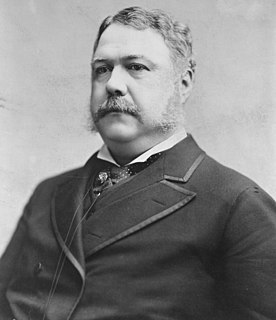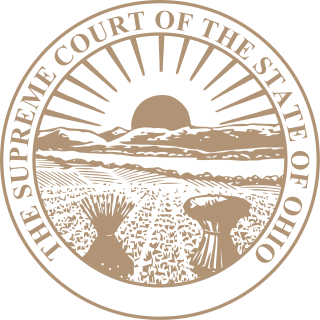
This section of the Timeline of United States history concerns events from 1860 to 1899.

This section of the Timeline of United States history concerns events from 1860 to 1899.


The Pony Express was a mail service delivering messages, newspapers, and mail.
The Crittenden Compromise was an unsuccessful proposal introduced by United States Senator John J. Crittenden on December 18, 1860. It aimed to resolve the secession crisis of 1860–1861 by addressing the fears and grievances about slavery that led many slave-holding states to contemplate secession from the United States.


The Fifteenth Amendment to the United States Constitution prohibits the federal government and each state from denying a citizen the right to vote based on that citizen's "race, color, or previous condition of servitude". It was ratified on February 3, 1870, as the third and last of the Reconstruction Amendments.

Yale University is an American private Ivy League research university in New Haven, Connecticut. Founded in 1701, it is the third-oldest institution of higher education in the United States and one of the nine Colonial Colleges chartered before the American Revolution.
The Enforcement Acts were three bills passed by the United States Congress between 1870 and 1871. They were criminal codes which protected African-Americans’ right to vote, to hold office, to serve on juries, and receive equal protection of laws. Passed under the presidency of Ulysses S. Grant, the laws also allowed the federal government to intervene when states did not act to protect these rights. The acts passed following the ratification of the Fourteenth Amendment to the US Constitution, which gave full citizenship to anyone born in the United States or freed slaves, and the Fifteenth Amendment, which banned racial discrimination in voting.


The University of Southern California is an American private research university in Los Angeles, California. Founded in 1880, it is the oldest private research university in California. USC has historically educated a large number of the nation's business leaders and professionals. The university has also used its location in Los Angeles to establish relationships with research and cultural institutions throughout Asia and the Pacific Rim. An engine for economic activity, USC contributes US$8 billion annually to the economy of the Los Angeles metropolitan area and California.

James Abram Garfield was the 20th president of the United States, serving from March 4, 1881 until his death by assassination six and a half months later. Garfield had served nine terms in the House of Representatives, and had been elected to the Senate before his candidacy for the White House, though he declined the Senate seat once elected president. He was the first sitting member of Congress to be elected to the presidency, and remains the only sitting House member to gain the White House.

Chester Alan Arthur was an American attorney and politician who served as the 21st president of the United States from 1881 to 1885; he was the 20th vice president of the United States and became president upon the death of President James Garfield in September 1881.


Jacob August Riis was a Danish-American social reformer, "muckraking" journalist and social documentary photographer. He is known for using his photographic and journalistic talents to help the impoverished in New York City; those impoverished New Yorkers were the subject of most of his prolific writings and photography. He endorsed the implementation of "model tenements" in New York with the help of humanitarian Lawrence Veiller. Additionally, as one of the most famous proponents of the newly practicable casual photography, he is considered one of the fathers of photography due to his very early adoption of flash in photography.

How the Other Half Lives: Studies among the Tenements of New York (1890) is an early publication of photojournalism by Jacob Riis, documenting squalid living conditions in New York City slums in the 1880s. It served as a basis for future "muckraking" journalism by exposing the slums to New York City's upper and middle classes. This work inspired many reforms of working-class housing, both immediately after publication as well as making a lasting impact in today's society.
The Sherman Silver Purchase Act was a United States federal law enacted on July 14, 1890.

This timeline of the American Old West is a chronologically ordered list of events significant to the development of the American West as a region of the United States prior to 1912. The term "American Old West" refers to a vast geographical area and lengthy time period of imprecise boundaries, and historians' definitions vary. The events in this timeline occurred primarily in the portion of the modern continental United States west of the Mississippi River, and mostly in the period between the Louisiana Purchase in 1803 and the admission of the last continental states into the Union in 1912. A brief section summarizing early exploration and settlement prior to 1803 is included to provide a foundation for later developments. Rarely, events significant to the history of the West but which occurred within the modern boundaries of Canada and Mexico are included as well.

The history of the United States from 1865 until 1918 covers the Reconstruction Era, the Gilded Age, and the Progressive Era, and includes the rise of industrialization and the resulting surge of immigration in the United States. This article focuses on political, economic, and diplomatic history.
| Wikimedia Commons has media related to United States in the 19th century . |
The Radical Republicans were a faction of American politicians within the Republican Party of the United States from around 1854 until the end of Reconstruction in 1877. They called themselves "Radicals" with a sense of a complete permanent eradication of slavery and secessionism, without compromise. They were opposed during the War by the moderate Republicans, by the conservative Republicans, and by the pro-slavery and anti-Reconstruction Democratic Party as well as by conservatives in the South and liberals in the North during Reconstruction. Radicals led efforts after the war to establish civil rights for former slaves and fully implement emancipation. After weaker measures resulted in 1866 in violence against former slaves in the rebel states, Radicals pushed the Fourteenth Amendment and statutory protections through Congress. They disfavored allowing ex-Confederates officers to retake political power in the south, and emphasized equality, civil rights and voting rights for the "freedpeople", i.e. people who had been enslaved by state slavery laws within the United States.

The U.S. state of Ohio has a Supreme Court of seven members, who are elected for six-year terms. See also:

Elections to the United States House of Representatives were held in 1864 to elect Representatives to the 39th United States Congress. The election coincided with the presidential election of 1864, in which President Abraham Lincoln was re-elected.

Gilman Marston was a United States Representative, Senator, and United States Army general from New Hampshire.

The National Union Party was the temporary name used by the Republican Party for the national ticket in the 1864 presidential election which was held during the Civil War. For the most part, state Republican parties did not change their name. The temporary name was used to attract War Democrats and border states, Unconditional Unionists and Unionist Party members who would not vote for the Republican Party. The party nominated incumbent President Abraham Lincoln and for Vice President Democrat Andrew Johnson, who were elected in an electoral landslide.
War Democrats in American politics of the 1860s were members of the Democratic Party who supported the Union and rejected the policies of the Copperheads. The War Democrats demanded a more aggressive policy toward the Confederacy and supported the policies of Republican President Abraham Lincoln when the American Civil War broke out a few months after his win in the 1860 presidential election.

This is a timeline of the 19th century.